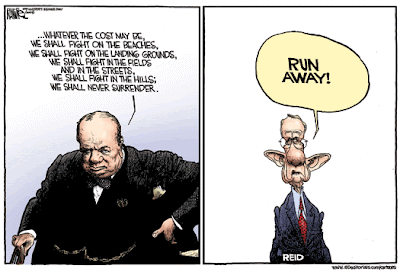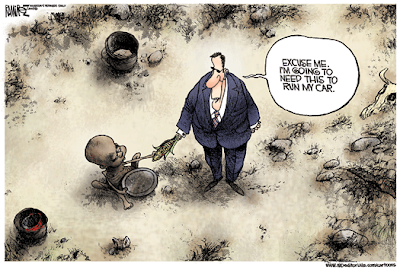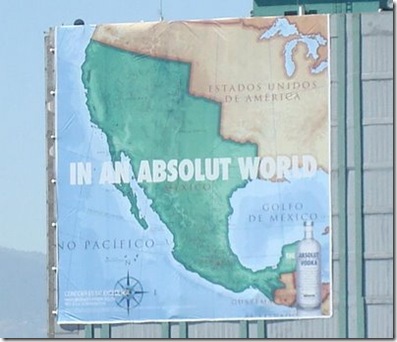Note: The following is a guest perspective that our very learned friend Alex offered up in a comments section to a recent post. I'm reposting it on the main page because it contains some really well-stated and well-explored insights about how we ought to think about the process of choosing a President. Nicely done, Alex.
Recently, ABC has received a substantial amount of criticism for its handling of the recent Democratic debate. While some commentators have risen to its defense, the consensus seems to be that ABC focused on political “process” questions or trivialities to the exclusion of policy issues.
While some of the criticism of ABC’s questioning is probably legitimate, the “not enough policy questions” criticism is based on a misconception: namely, the misconception that policy questions can or should be fruitfully addressed in such a forum.
Of what value is a candidate’s 30 second (or even 30 minute) discussion of, say, tax or defense policy? Tax and defense are hugely complicated areas of law with often contradictory policy goals (e.g., for tax, to fund desired social programs while at the same time decreasing tax burdens). These subjects are debated intensely by specialists without the emergence of a clear and enduring policy preference. The candidates themselves are not even close to being experts on the subjects. Are Senators Clinton or Obama, or McCain for that matter, intimately familiar with the key data involved in such policy fields? The answer is no, they’re not and they shouldn’t be. Politicians are generalists. The actual work of formulating the details of tax or defense policy, and ultimately legislation, is done by buildings full of specialist bureaucrats after consultation with experts, lawyers and so on. We inevitably hear from candidates only vague promises buttressed by platitudes and tautologies. Even the most detailed campaign proposals can address only a small portion of the larger policy field. Such fragments of detail only highlight obvious retorts, crying out for an extended policy discussion that few people are willing to endure, much less broadcast.
Moreover, even if a candidate could formulate and present a comprehensive policy on a given subject, it is unrealistic to expect that such a policy could be implemented as formulated. Once introduced as a legislative proposal, the precise terms and proposals face near certain amendment, if not outright legislative death. Although the last few executives have seized the policy bully pulpit, Congress writes the laws that implement the policy, and neither party’s candidates should expect cooperation on policy issues that run deeply counter to the other party’s platform (health care mandates, the war in Iraq, etc.).
Yet, even assuming a cooperative Congress, there is no guarantee that a candidate’s policy statements will find implementation in the future. Our system is one of institutions and institutional actors, constrained by the inertia of the civic process and logic of events. If Iran obtains and threatens to use nuclear weapons, for example, the possible responses will constrain any executive. In the face of unexpected but unavoidable facts, any contrary policy hopes will have to be sacrificed.
If this line of reasoning is sound, then it pointless to spend time asking candidates detailed policy questions because they won’t be able to provide a cogent and comprehensive answer, and it is unlikely that they will be able to implement any proposals they do make. What, then, is a debate moderator to ask?
If candidates can’t address specific policy issues in a worthwhile way, they can at least articulate keys to their political philosophy – the fundamental principles from which specific policy positions issue forth. Unfortunately, neither the candidates nor the public are likely to endure any in depth discussion of political philosophy. There will be some discussion about the role of government at home and abroad, but there won’t be much beyond that.
There is, however, perhaps an even more fundamental wellspring for a candidate’s specific proposals, one, in fact, that can be presented almost instantly while at the same time capturing the public’s interest: a candidate’s character. What sort of person a candidate is will determine what that candidate believes, or what he or she should believe. This view of things is perhaps somewhat naive. It doesn’t take into account the skill with which politicians parse their answers and manage and manipulate their public image. Nevertheless, character issues resonate with the voting public. A person’s character is something he or she can change, but only with great effort. There are no shortcuts, and one can’t avoid displaying one’s character, faults and all, in the basic process of human interaction.
That is why questions concerning Senator Obama’s religious affiliations, for example, have endured: people want to know how he will react to such an obviously human situation of conflicted loyalties and interest. Senator Obama, early on, acquitted himself well with regard to the Rev. Wright issue. He genuinely distanced himself from Rev. Wright’s deplorable comments, while at the same time preserving a personal connection reflecting the Senator’s familiar and understandable connection to some a person so prominent in his life history. However, there is a fine line, and coverage of the story soon crossed it. The media or parts thereof, turned a legitimate but properly minor story into a distorted human-interest frenzy that obscured the relevant demonstrations of character.
Contrast Senator Clinton’s shamefully handled sniper stories. In the face of such telling character flaws – the desperate need to self-promote at the expense of the truth – her alleged policy experience, meaningless in the face of any candidate’s fundamental ignorance and institutional impotence, should count for little.
Admittedly, emphasis on character is an old-fashioned if not moralistic way to view political candidacies, and people generally. Nevertheless, when policy statements are designed to maximize general appeal and minimize serious discussion, the traits that determine policy statements are the next best thing. That’s why, in presidential candidates, character is more important that policy


